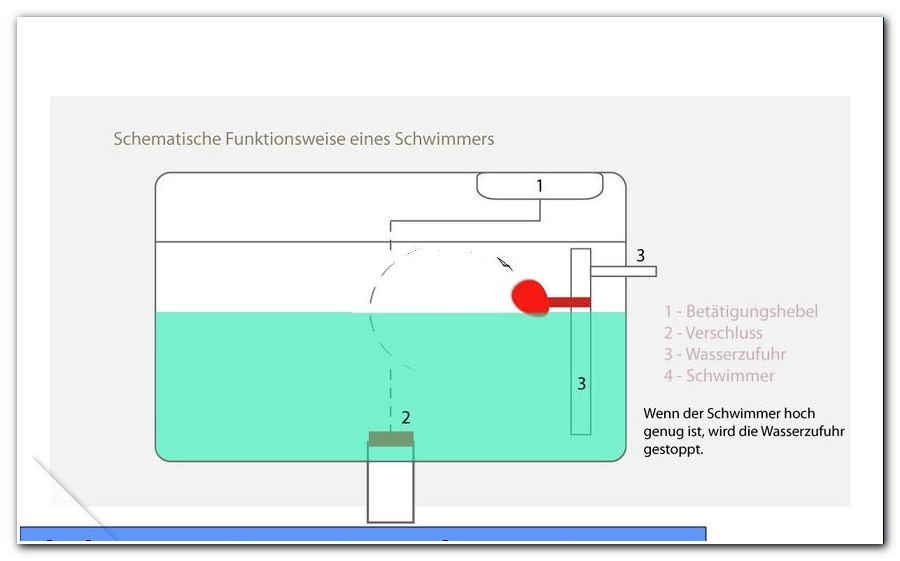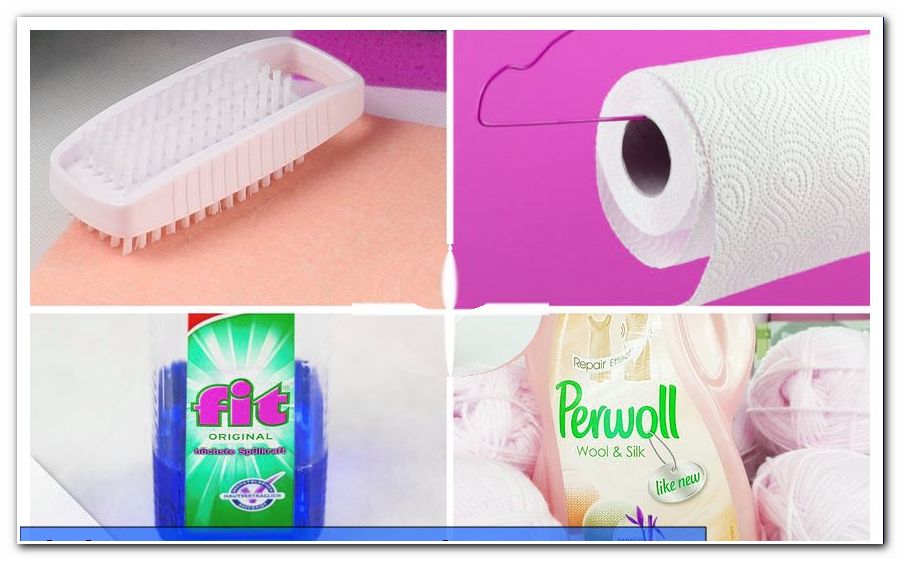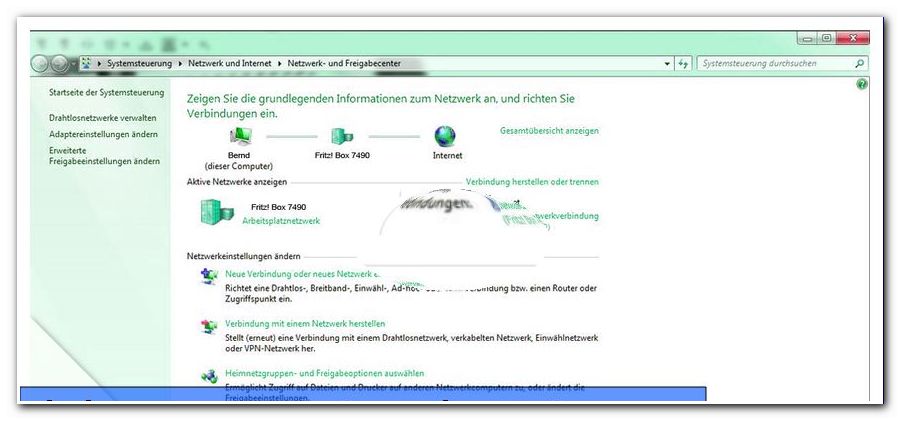Blue Grain Fertilizer - Composition & Instructions for Dosing

- Factsheet - Blue Grain
- Advantages and disadvantages of blue seed
- Bluecorn is poisonous "> Blue Grain ENTEC
Blaukorn is a pure mineral fertilizer and an artificial fertilizer. It is a so-called NPK fertilizer, so it mainly contains nitrogen (N), phosphate (P) and potassium (K). These complete fertilizers have the advantage that the active ingredients are available immediately, but it also often leads to over-fertilization of the soil and this harms the plants more than it helps. Blue Grain does not contain any valuable organic matter, it does not contribute to the formation of humus and does not contain any food for the beneficial soil organisms. Hardly any fertilizer is as controversial as blue grain. He is loved or hated, there is no intervening.
Factsheet - Blue Grain
- Already since 1927 in use
- Proper name - complete fertilizer
- Name - bluish coloration of fertilizer granules
- Active ingredients - nitrogen, phosphorus, potassium
- Other ingredients: magnesium, iron, sulfur and trace elements
- Different compositions - depending on the manufacturer
- Most used fertilizer in commercial horticulture
- Blue grains or liquid fertilizer
- Simply fast and inexpensive - good value for money
- Not suitable for all plants, eg not for potted plants, flowering plants, as the majority leaves and stems are promoted, but no flowers
Advantages and disadvantages of blue seed
| advantages | disadvantage |
| + The nutrients are available very quickly, which makes it great for deficiency symptoms + Nevertheless, the individual granules do not dissolve all at once, but the active ingredients are dispensed well dosed to the ground + quick, easy to use, if you follow the instructions for use + high of nutrients in relation to the applied salt quantity + Comparatively inexpensive | - Risk of soil over-fertilization, especially serious in potted plants - there is a possibility that nitrate will enter the groundwater - bad for soil structure and soil life - Soil fertility decreases when the soil organisms die - There can be no formation of humus and the soil leaches out - The mineral salts accumulate in the soil and are degraded only insufficient - contain too much nitrogen, which promotes the growth of length - for flower and fruit formation lacking appropriate nutrients. |
Bluecorn is poisonous "> Blue Grain ENTEC
Blaukorn Entec is a new development from Compo, but the fertilizer has been around for several years. It is also an NPK fertilizer, which should have a better effect, because the nutrients are better utilized. The fertilizer should have a temperature-dependent effect, between 4 and 10 weeks, prevent the formation of nitrate in the garden soil and much more. Actually, the description sounds like a true miracle cure. The most important feature for me is that it should be groundwater friendly. "The risk of nitrate leaching into the groundwater is significantly reduced". Reduced does not mean that there is no leaching.
Blue grain as liquid fertilizer
There is also that, blue grain as liquid fertilizer. This fertilizer is particularly suitable for potted plants because it can simply be better dosed. Nevertheless, one must beware of over-fertilization and dose exactly according to instructions. This complete fertilizer is also effective quickly and has the same good properties that are said for the ENTEC fertilizer. The liquid fertilizer does not have the disadvantage that it is dangerous for children and pets. He quickly penetrates the ground and then he is superficially gone.
Composition of blue grain
The main nutrients in blue seed are nitrogen, phosphorus and potassium. Experts therefore call the fertilizer NPK fertilizer. In addition, there are other plant growth-promoting trace elements in the fertilizer. These vary, however, depending on the manufacturer. Overall, blue grain is an all-round fertilizer and can be used in almost all plants.
 Depending on the product offered, the quantities of the three main elements are different.
Depending on the product offered, the quantities of the three main elements are different.
- Compo Blaukorn® classic - 12 + 8 + 16 (+ 3 + 10) - Potash and phosphate-strong mineral fertilizer, additionally with magnesium, sulfur, boron, iron and zinc
- Compo Blaukorn® premium - 15 + 3 +20 (+ 3 + 10) - high-potency, very low-phosphate mineral fertilizer with magnesium, sulfur and other trace elements
- Compo Blaukorn® supreme - 21 + 5 + 10 (+ 3 + 6) - nitrogen-enhanced mineral fertilizer with magnesium and sulfur
- Compo Blue Grain ENTEC - 14 + 7 + 17 (+ 2 + 10) - nitrogen-enhanced mineral fertilizer with nitrification inhibitor, with magnesium, sulfur, boron and zinc
- Compo Blue Grain NovaTec liquid - 8 + 8 + 6, with trace nutrient and with nitrification inhibitor
Dosage and application
The dosage is different and depends on the composition, so the nutrient combination and what should be fertilized with it. The packs contain specific information and these should be adhered to. Each plant has a different need for nutrients and is also different in seasons. In the growing season, it is usually much higher than in the rest of the time.

The most beneficial is the blue seed fertilization in spring, at the beginning of the growing season. Care should be taken with young plants, as the sharp fertilizer can injure or burn the tender roots.
Application of blue grain
Usually a few beads of fertilizer are enough. It is important not to bring the blue granules too close to the trunk, so that this and the underlying roots are not burned. Ideal is when the earth is moist. Also water abundantly afterwards, so that the blue grain can dissolve.
When lawn fertilization, the lawn should be dry and watered only after application.
No matter which plants should be fertilized, it is important to read the leaflet and to follow the dosage. One can not document a uniform application here, because it depends on the composition of the fertilizer. The fertilizer should be really weighed for safety's sake.
Tip: Do not use blue grain too often. The granules dissolve only slowly and too frequent application overfertilization. This is especially important for vessels such as potted and tub plants. Even window boxes have only a limited volume of earth and the roots of the plants burn quickly. At Blaukorn the motto is: "Less is more!"





